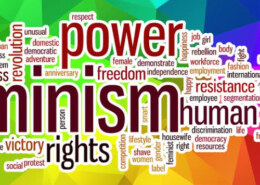What are the major challenges in implementing the Women’s Reservation Bill?
Today's feminism is multifaceted, addressing not just gender equality but also intersectionality, considering race, class, and other identity markers. Positively, it has led to increased representation of women in leadership, greater awareness of sexual harassment, and advancements in reproductive rRead more
Today’s feminism is multifaceted, addressing not just gender equality but also intersectionality, considering race, class, and other identity markers. Positively, it has led to increased representation of women in leadership, greater awareness of sexual harassment, and advancements in reproductive rights. Social media has amplified feminist voices, fostering global solidarity and movements like #MeToo.
However, it also faces criticism for fragmentation, potentially diluting its message and causing division. Some view it as occasionally too aggressive, which can alienate allies. The commercialization of feminism by corporations for profit further raises concerns about genuine commitment to gender equality.
In summary, modern feminism is complex and dynamic, driving positive change while navigating significant challenges to remain inclusive and effective.
See less


Women's Reservation Bill 2023 provides 33% reservation for women in state legislature and parliament. The main aim is to empower women through political representation in Indian society. Major challenges in implementing the Women's Reservation Bill: The primary challenge is Delimitation which is a pRead more
Women’s Reservation Bill 2023 provides 33% reservation for women in state legislature and parliament. The main aim is to empower women through political representation in Indian society.
Major challenges in implementing the Women’s Reservation Bill:
The primary challenge is Delimitation which is a process of redrawing the boundaries of both parliament and state legislative assemblies. This process is done every few years after taking the census to ensure that no delegates are under-represented or overrepresented. The main concern in delimitation is that it is based on population parameters. It may end up with more seats occupied by northern states like Uttar Pradesh. Despite contributing 35% of GDP, southern states like Kerala will occupy less number of seats in parliament.
The other challenge is the Triple Test which was suggested by both the Government and supreme court mandatorily before OBC reservation in local bodies. The process of the triple test is so long. However, it does not apply to political reservations for SC/STs under Article 334. It applies only in the case of quota for Government employment. Also, the women’s reservation bill could continue the existing gender disparities in society. Regarding the participation of women in Rajya Sabha and important committees were not discussed in this bill. This could be a bigger challenge.
These challenges need to be addressed to implement a women’s reservation bill acceptably.
See less